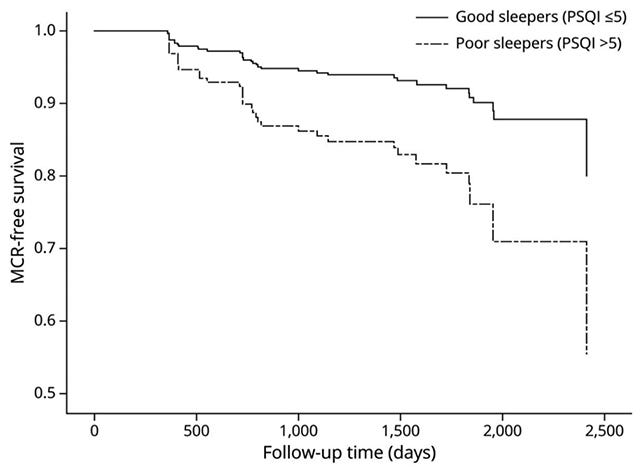Excessive Daytime Sleepiness Linked to Early Signs of Dementia Risk in Older Adults
Older adults who exhibit excessive daytime sleepiness or a lack of motivation for daily activities may be at an increased risk of developing motoric cognitive risk (MCR), a pre-dementia syndrome that can progress to dementia. This conclusion arises from a new study conducted by researchers at the Albert Einstein College of Medicine in New York, which examined associations between daytime sleepiness and indicators of MCR, specifically occasional memory lapses and slower walking speed.
Identifying Early Markers of Dementia Risk
The study's findings could enable healthcare professionals to detect dementia risk earlier and intervene before the condition progresses. "Our findings emphasize the need for screening for sleep issues," says lead author and geriatrician Victoire Leroy. "There's potential that people could get help with their sleep issues and prevent cognitive decline later in life."
The research involved 445 dementia-free adults over the age of 65, with an average age of 76. Over a period of three years, participants were assessed annually through questionnaires addressing memory recall, sleep habits, and daily functionality. In addition, their walking speed was evaluated using treadmills.
Sleepiness and Loss of Motivation Strongly Associated with MCR
Results showed that 35.5% of individuals experiencing both excessive daytime sleepiness and low enthusiasm for daily activities developed MCR. In contrast, only 6.7% of those without these symptoms developed the syndrome. Although the study did not establish a causal link, the association suggests that these symptoms may serve as early markers of MCR. After controlling for age, sex, and various health conditions, including depression, the likelihood of developing MCR remained three times higher in those exhibiting these symptoms.
"Our findings also emphasize the need for an early screening of sleep disturbances as a potential preventive intervention for cognitive decline," the researchers state in the published report.

Implications for Preventing Dementia
Research has consistently shown that early diagnosis of dementia or pre-dementia significantly improves the potential for prevention. Individuals diagnosed with MCR are approximately three times more likely to develop dementia compared to the general population, with vascular dementia being particularly common due to reduced blood flow to the brain.
This study provides a possible early warning sign for increased dementia risk, though further investigation is required to fully understand the underlying causes of the observed association.
"More research needs to be done to look at the relationship between sleep issues and cognitive decline and the role played by motoric cognitive risk syndrome," says Leroy. "We also need studies to explain the mechanisms that link these sleep disturbances to motoric cognitive risk syndrome and cognitive decline."
Your Call to Action for Spotting Dementia Risk Early
If you or someone you know is experiencing excessive sleepiness during the day or a lack of motivation for daily activities, it may be more than just fatigue. These could be early indicators of a condition that raises the risk of developing dementia. Discuss any changes in sleep patterns, mood, or mobility with a healthcare professional. Prioritizing sleep hygiene, staying mentally and physically active, and undergoing regular cognitive assessments can play a crucial role in maintaining long-term brain health. Taking these steps today may help prevent cognitive decline in the years to come.
My YouTube Channel: https://www.youtube.com/@MyLongevityExperiment
Study Links:
Share
Previous
